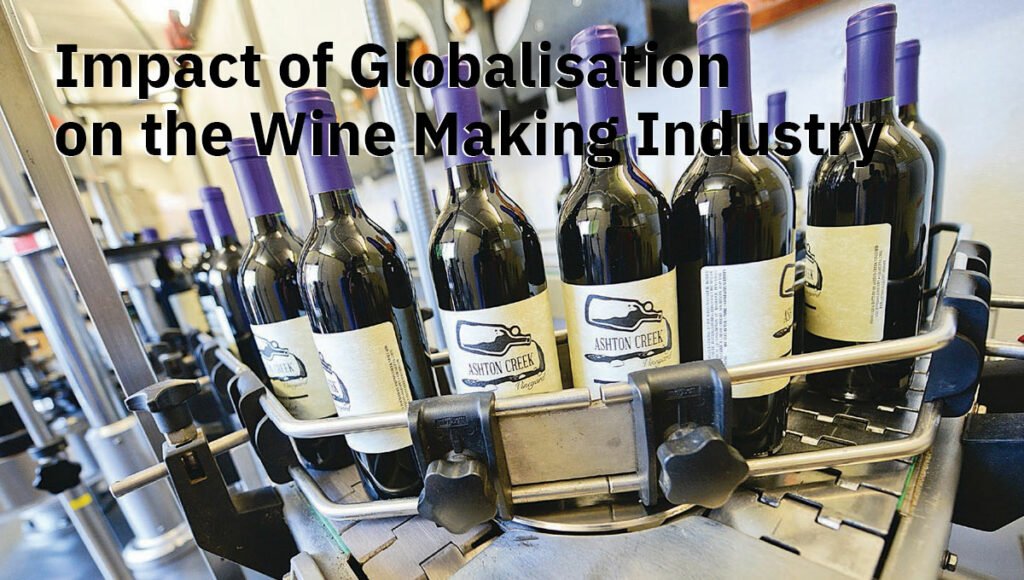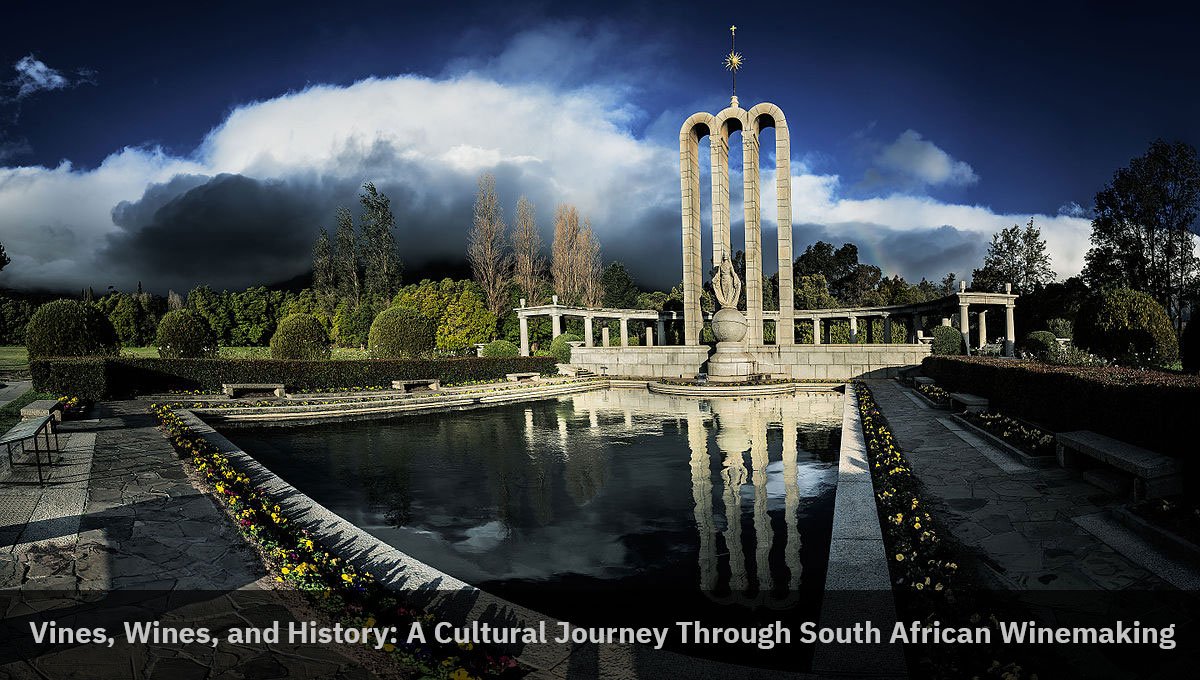A brief overview of South African winemaking history
Starting in the early 16th century, South African wine has a long and illustrious history. The Dutch East India Company imported the first vines to the Cape of Good Hope in 1598. South Africa swiftly established itself as a significant wine-producing region, exporting copious amounts of wine to Europe. French Huguenot immigrants brought new grape types and winemaking methods to South Africa in the 18th century. Due to the abolition of slavery and the start of the Anglo-Boer War, the South African wine industry suffered during the 19th century. South African wine experienced a renaissance in the 20th century with the establishment of numerous new vineyards and wineries. The wine sector was subject to severe restrictions under the apartheid government, although they were gradually eased in the 1990s. South Africa is currently a significant producer and exporter of wine with a growing local market.
Early History of South African Wine
Wine’s introduction to South Africa has a convoluted and contentious history. Although the Dutch East India Company brought wine to the area for the first time in 1659, the Portuguese introduced wine even earlier. In the Cape, the wine developed into a significant aspect of Dutch society and was even used as money. The Cape had a robust wine industry by the early 18th century, and the Dutch and French planted vines there. However, this thriving economy stopped when the British took control of the Cape during the Napoleonic Wars. The British heavily taxed the wine because they had little interest in it. The winemaking business was essentially destroyed as a result, and it wasn’t until later in that century that it started to recover. More failures occurred in the early 20th century when Cape grapes were severely impacted by phylloxera. However, the South African wine business has since grown significantly, producing several wines that are well-known around the world.

The influence of colonialism on winemaking
Jan van Riebeeck, the Dutch East India Company captain at the Cape of Good Hope, wrote about wine for the first time in South Africa in his notebook for 1659. He mentioned that he had planted vines and that “the grapes will be fit for making wine in due course.” The Chenin Blanc grape was also brought to the nation by Van Riebeeck. The French Huguenots arrived in the 1600s, immediately after the Dutch. The Huguenots brought grapes like Cabernet Sauvignon, Merlot, and Sauvignon Blanc, as well as knowledge of agriculture and winemaking. They made their home in the Stellenbosch region, which is still one of the most significant wine-producing areas in South Africa. Shiraz and Chenin Blanc vines were introduced after the British took over the Cape in 1795. Fortunately, they also carried a fungus known as powdery mildew, which had little impact on South African grapes but ravaged European vineyards. South African wines consequently gained popularity in Britain as a substitute for French wines, sometimes tainted by powdery mildew. Napoleon’s order requiring the seizure of all British ships entering French ports in 1806 caused a sharp rise in demand for South African wines. This persisted until Napoleon was finally vanquished in 1814.
The role of slavery in winemaking
Slavery played a significant part in South African wine’s lengthy and complex history. The Dutch East India Company dominated the South African wine industry for many years and used a lot of slave labour to make its wines. At the southernmost point of Africa, the Dutch East India Company founded the Cape Colony in 1652. They also brought many slaves from Angola and other parts of Africa, as well as vines and winemaking expertise from their native country. The slaves contributed significantly to the early growth of the South African wine industry by working in the vineyards and cellars. After gaining their freedom, many slaves started their own vineyards and wineries. The Cape Colony ended slavery in 1834, and wine production increased steadily. South African wine is now consumed around the globe, and the nation is home to some of the industry’s most renowned winemakers. While the significance of slavery in South African history is frequently underestimated, it is crucial to keep in mind that without the toil and commitment of people who were made to work in the country’s vineyards, wine would not be what it is today.
The impact of apartheid on winemaking
South African winemaking was significantly impacted by apartheid. Numerous vines must be removed and replaced for the wine business to adjust to the new economic climate of the nation. Additionally, winemakers faced rising taxes and limitations on their ability to buy land and vines. Overall, South African wines’ quality suffered as a result. The end of apartheid and the return of some of the nation’s greatest winemakers, however, have helped the wine sector start to rebound in recent years.
Modern South African Winemaking
The current state of the South African wine industry
The South African wine business has seen a significant transition in the more than 20 years since the end of apartheid. The nation now produces the most intriguing wines in the world thanks to a new generation of winemakers pushing the envelope of what is conceivable. The last few years have been especially lively, with a wave of creative winemakers experimenting with new grape varieties, styles, and methods. Due to this, South African wine has seen a resurgence, with delicious new wines being made all around the nation. The South African wine business is in a very dynamic place right now, with lots of experimentation and innovation. South Africa is currently, without a doubt, one of the most interesting wine-producing locations in the world, and as a result, some incredibly exquisite wines are being produced.
The emergence of new wine regions and wineries
New wine regions and wineries have appeared in South Africa in recent years. These newcomers to the South African wine market are fostering a more dynamic and diverse wine culture in the nation. The Swartland is one of South Africa’s newest wine-growing regions. Many tiny, family-owned vineyards in this area are making some top-notch beverages. Red wines from various grapes, including Shiraz, Grenache, and Mourvèdre, are famous in the Swartland. The Witzenberg Valley is a new wine region in South Africa. South of Cape Town, in the Western Cape province, is where this area is situated. Several tiny vineyards in the Witzenberg Valley produce some excellent wines. Wines made with Pinot Noir and Chardonnay are the main focus here. The introduction of these new wine regions and wineries is assisting in the diversification and excitement of the South African wine sector.
The role of technology and innovation in winemaking
The numerous contemporary wineries and cellars constructed in recent years show the importance of technology and innovation in South African winemaking. The use of computer-aided fermentation and temperature-controlled stainless steel tanks and barrels has improved the uniformity and quality of the final product. Additionally, new technology has made it possible to create wines with distinctive flavour profiles that capture the terroir of particular locations. This is especially true for traditional grape varieties, such as Chenin Blanc and Pinotage, used to make varietal wines. It is evident that innovation and technology are essential to South African winemaking and will remain so as the sector develops.
The impact of globalisation on South African winemaking

South African wine producers have been significantly impacted by the globalisation of the wine business. The increased competition from abroad has been the most noticeable difference. Recent years have seen an influx of New World wines, mainly from Australia and Chile, which has put pressure on South African growers to reduce costs and boost productivity. Numerous South African wineries have responded by implementing cutting-edge production methods and marketing practices. Globalisation has, however, also given South African winemakers new prospects. Demand for high-quality wines from around the world, including South Africa, has increased as a result of the expansion of the premium wine market on a global scale.
Additionally, customers are increasingly willing to sample new wines from uncharted locations as they become more educated and daring. This has given South African producers access to new markets. For South African wineries, globalisation presents both opportunities and challenges. However, the global wine market is undoubtedly becoming more competitive and dynamic, and South African producers will need to keep innovating and adapting if they want to stay ahead of the competition.
South Africa exports a significant amount of wine to the United Kingdom. Due to the many connections that British people have to South Africa, there is a high demand for South African wines in the UK. These wines are readily available for purchase on our online wine shop.
Cultural Significance of South African Winemaking
The role of wine in South African culture and society
Wine has a lengthy and illustrious history in South Africa. Since the country’s first wine harvest in the early 1600s, it has been a significant part of South African culture and civilisation. South Africa’s culture and traditions are closely entwined with wine. It is a common component of social gatherings and is employed in religious events. South Africans appreciate discussing wine and imparting their expertise on various wines to others. In South Africa, wine is also a significant component of the economy. Each year, the wine industry generates billions of dollars in income and employs thousands of people. For the nation, wine exports are an important source of foreign currency. South African wines now command a high level of respect on a global scale due to recent significant quality improvements. This has contributed to the global upsurge in demand for South African wine.
The impact of winemaking on economic development
The country’s economy has benefited from South Africa’s wine industry. It has acted as a catalyst for economic growth, providing many people jobs and income, especially in rural areas. Additionally, the wine business has greatly aided the development of the tourist sector—currently one of South Africa’s primary industries. Wine-producing regions of the nation, including the Western Cape, are well-known tourism destinations that welcome visitors from all over the world to sample local wines, learn about the culture, and take in the stunning environment.
Increased wine exports have benefited South Africa’s economy. The nation has a long history of exporting wine, which dominates the international market today. The foreign exchange produced by this industry has significantly impacted the trade balance. South African wines have gained popularity domestically and globally, particularly in Europe and America. The favourable response to their wines has boosted their status as a reputable wine-producing nation. Additionally, the wine sector offers fantastic opportunities to support vineyards, grape growers, and other agricultural entities.
The South African economy has been significantly impacted by the wine industry. Wine production and distribution small and medium-sized businesses have benefited from its encouragement of investment and growth in the broader agri-processing sector. However, this significant industry is still a major force behind South Africa’s national economic development.
The representation of South African winemaking in art and literature
Since colonisation began, wine has been a significant part of South African culture. It was a favourite among the affluent for a long time and represented colonial power and prestige. But in recent years, South African wine has gained recognition for its excellence and distinctiveness and is now savoured by individuals from all social strata. South African wine has long been depicted in literature and art. Early colonial paintings and prints frequently showed the Cape Colony’s vineyards and grapevines. Artists then started to show the winemaking process, from grape harvest through the bottling of the completed product, as the wine industry grew. Numerous well-known authors and poets have discussed South African wine in writing. In his novel “The Book of Snobs” from the 19th century, author William Thackeray wrote of his travels to Cape Town and the nearby Winelands. More recently, the Booker Prize–winning novel “Disgrace” by renowned author J.M. Coetzee was set on a fictional wine farm in the Western Cape. Additionally, heavily depicted in both cinema and television is South African wine. Nelson Mandela and François Pienaar are depicted in the Academy Award-winning movie “Invictus” sharing a bottle of South African wine after the latter’s rugby team won the 1995 World Cup.
The importance of wine tourism in South Africa
Wine tourism is one of the most significant sectors of the South African economy, which brings in millions of dollars annually. In addition to giving the nation’s economy a much-needed boost, wine tourism also helps to promote its history and culture. The South African wine business is well-known worldwide, and the nation’s wines are among the most well-liked worldwide. As a result, South Africa’s wine tourism sector is flourishing. Thousands of tourists from all over the world visit the nation each year to taste its wines and discover its long history of winemaking. Visitors can find the country’s varied culture and landscapes through South African wine tours. There is something for everyone to appreciate, from the verdant vineyards of the Cape Winelands to the untamed beauty of the Klein Karoo. Visitors can engage in various activities like hiking, horseback riding, and even hot air ballooning, in addition to tasting some of the best wines in the world. It makes sense that wine tourism is a significant contributor to South Africa’s economy, given everything that it has to offer. Wine tourism helps the nation financially while enhancing its reputation abroad by showcasing its history and culture.
In conclusion, South African winemaking is a centuries-long, richly varied cultural journey that reflects the culture and people of the nation. South African wine has a long and storied history that dates back to the first vines’ arrival in the 16th century. Slavery’s involvement, colonialism’s influence, and the Anglo-Boer War’s effects can all be seen in the early years of business. The business struggled in the nineteenth century, but the creation of numerous new vineyards and wineries in the twentieth brought about a revival. Under the apartheid regime, the wine industry was subject to harsh restrictions, albeit gradually relaxed in the 1990s. South Africa is a crucial wine producer and exporter with a developing domestic market. The South African wine industry has contributed significantly to the growth and development of the nation’s economy and will likely continue to do so. Aside from the representation of South African winemaking in literature and art, the cultural relevance of South African winemaking is also clear given the place of wine in South African society and culture. It is an interesting and complicated topic that deserves additional investigation.
South African wine is freely available in the UK, although access to quality South African wine can be patchy. Our website www.southafricanwines.co.uk specialises in South African wine and is open online 24 hours a day.
You can see our full range of blog posts by South African Wines Blog
To see our full range of wines available on our Auswines website click here, and here for our range of Vegan Wines



